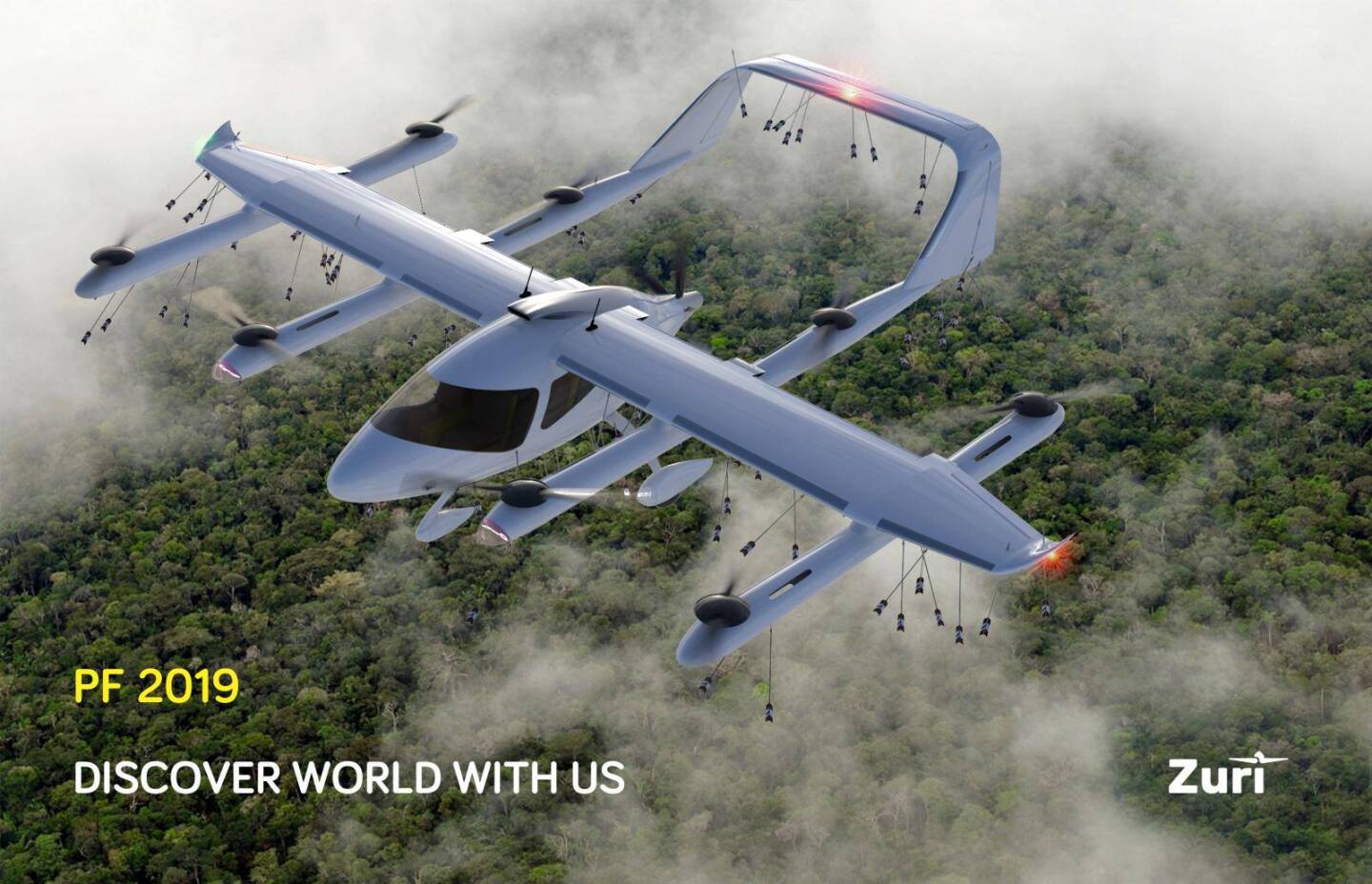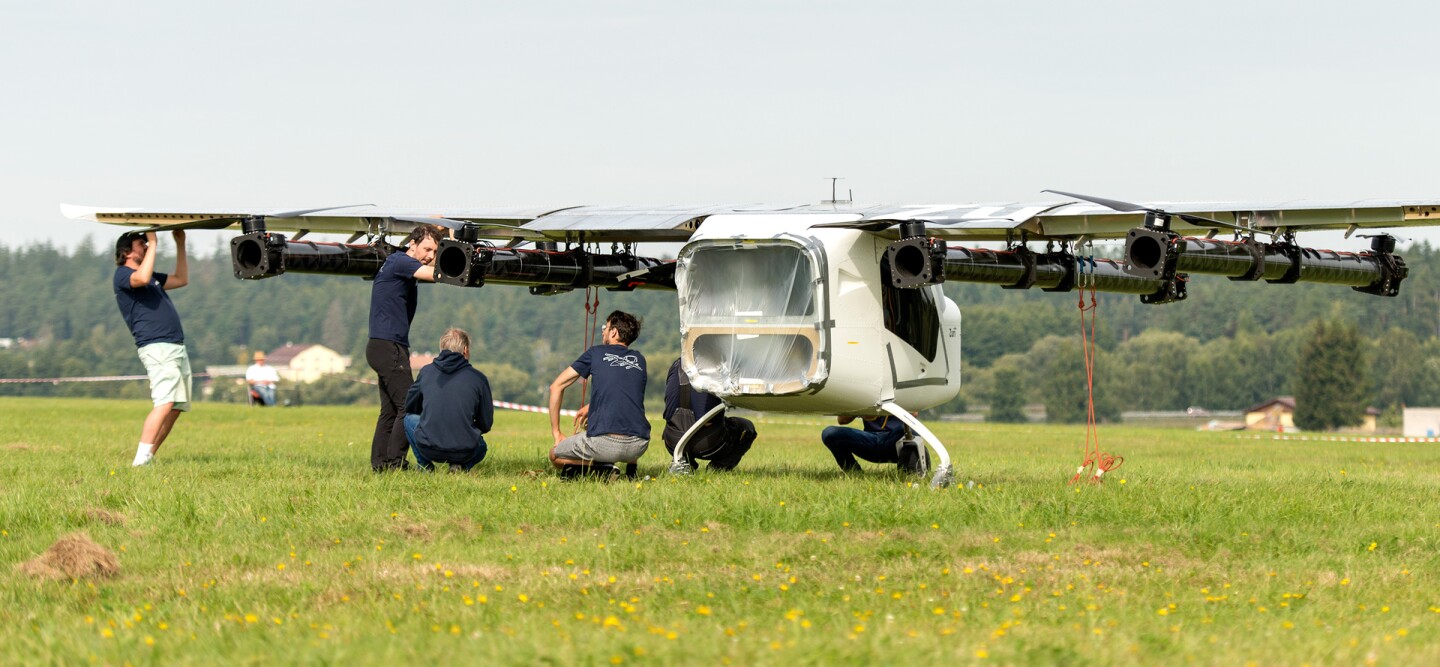Czech company Zuri has commenced hover testing on its first near-scale VTOL air taxi tech demonstrator. With a hybrid powertrain on board, this team promises real-world range figures up to 720 km (447 miles) at cruise speeds up to 320 km/h (200 mph).
Batteries are extremely heavy, and hydrogen technology might take some time to hit the mainstream. When either of these problems get solved, electric VTOL aircraft will instantly be able to fly a lot further.
But there are companies that want to launch with long range figures, and they’re willing to sacrifice the clean powertrain to do it. France’s Ascendance, Russia’s Cyclocar, Switzerland’s Manta, the UK’s Samad Aerospace, Canada’s Horizon Aircraft (now part of Astro Aerospace), Rolls-Royce and Colorado’s XTI Aircraft, among others, all have hybrid-electric air taxi designs in development that use fossil fuels to radically extend their range.

Zuri
Prague-based Zuri joins the list with a 3-4 seat hybrid lift & cruise design targeted at the “regional air mobility” market. It’s a fairly classic design; large wings, crossed by four long propulsion pods supporting eight vertical lift props. The middle two pods are joined by a relatively large rear wing, and there’s a pusher prop on the back for efficient high-speed cruise, during which the lift props will all lock into their lowest-drag orientation.
Zuri’s hybrid approach appears to be running battery packs mainly for the VTOL phases of flight, with a relatively small combustion motor driving the pusher prop.
Zuri began flying small-scale prototypes with 2-m (6.6 ft) and 5-m (16.4 ft) wingspans back in 2018, and has since marshaled the funding to build a 90 percent scale tech demonstrator with an 11-m (36 ft) wingspan.

Zuri
This tech demonstrator has now entered its first phase of flight testing, performing static tethered hover tests in a “flying wing” configuration. Once hover testing is complete, the company plans to finish it off, and make a single-seat experimental aircraft out of it to proceed with further testing.
Angel-funded with about €2.4 million (US$2.7 million) at this stage, Zuri says it’s got enough cash “for the current development phase.” Commercial certification, of course, is a different kettle of very large and fragrant fish that most expect will push well into the hundreds of millions of dollars before companies deliver a single customer order.
To raise that kind of money, Zuri will need to differentiate itself pretty substantially from the rest of this bustling market, and it’s hard to see a combustion engine and gas tank moving the needle too far among investors with pockets that deep. But you never know, and the Zuri team has done admirably to advance as far as it has.
Check out the short first flight test video below.
First footage of Zuri demonstrator in hover flight
Source: Zuri
Source of Article